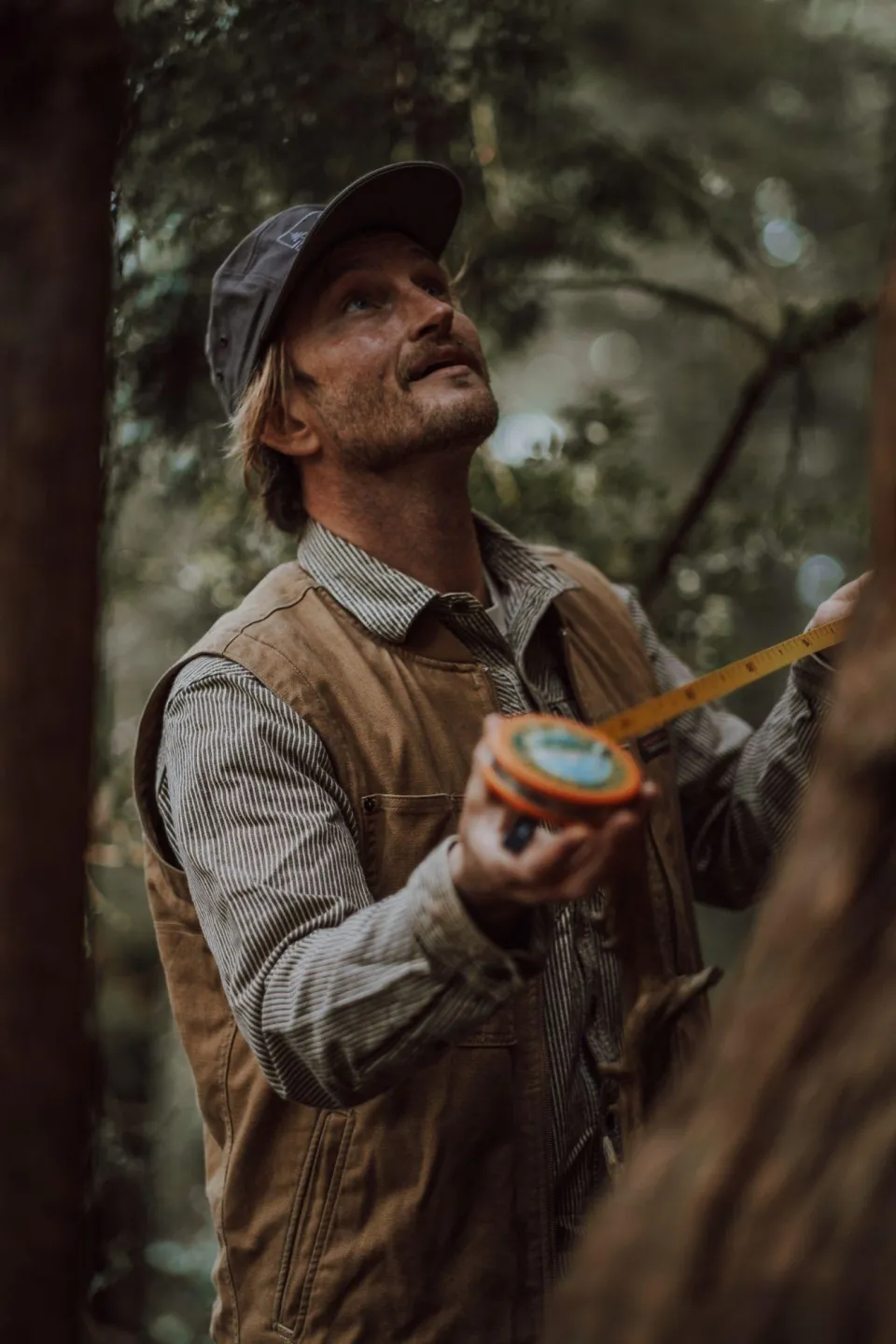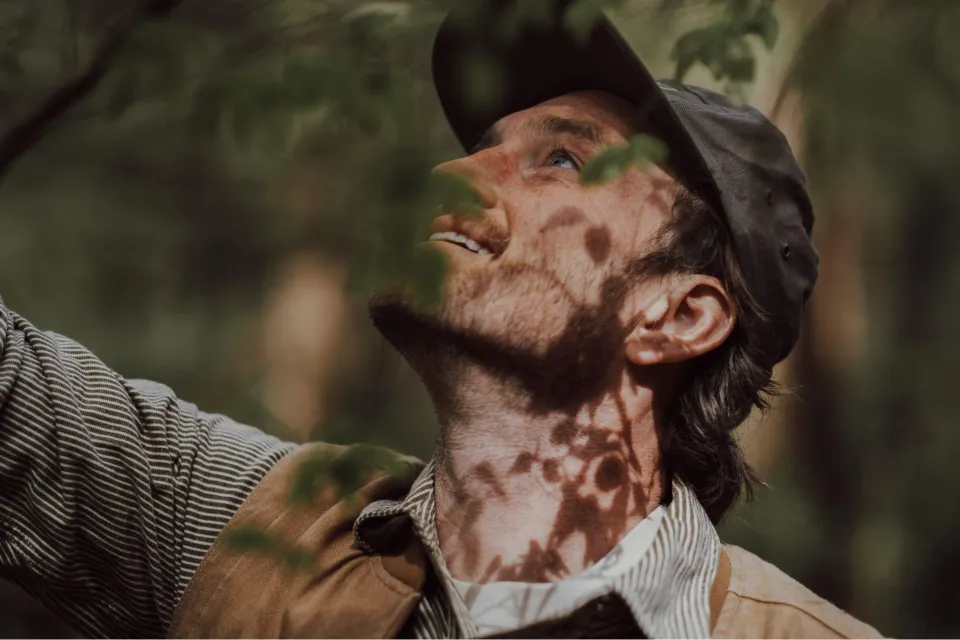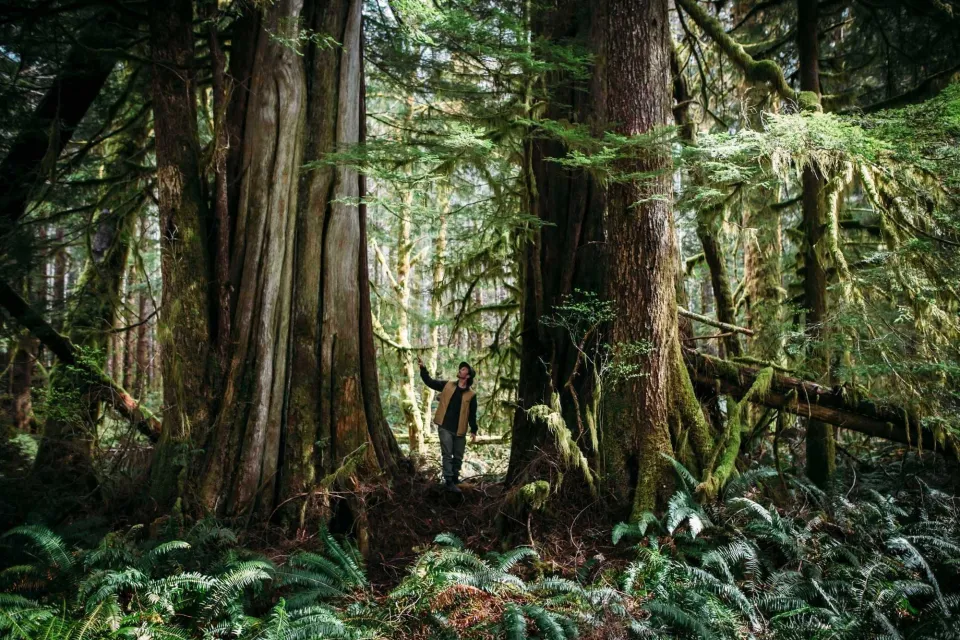-
About
-
Products
- By Timber Product
- Cladding
- Decking
- Joinery
- Screening
- Panelling
- View all
- By Application
- Exterior Cladding / Siding
- Exterior Rain Screen
- Exterior Roofing
- Interior Walls & Ceilings
- Soffits
- Screening, Fins & Battens
- Windows, Doors & Joinery
- Posts & Beams
- Accessories + Samples
- Coatings
- Fixings
- Samples
-
Shop
- Samples
- Timber Samples
- Architectural Sample Box
- View all
- Accessories
- Coatings
- Fixings
- View all
-
Resources
- By Resource Type
- Technical Data Sheets
- Guides & Manuals
- Technical Articles
- Profile Drawings
- View all
- How To
- How To Specify
- How To Install
- How To Maintain
- Projects
- Contact
Driving Change with Positive Activism and Education
Ecologist, filmmaker and educator Ross Reid explains the dangers facing old growth forests and how rapidly renewable timbers can help protect them.
When the pandemic lockdowns hit Canada in 2019 and his filmmaking work was put on hold, outdoor sports enthusiast and naturist Ross Reid decided to channel his passion for the natural world into a new education platform.
Nerdy About Nature breaks down barriers to factual, science-based education and provides much-needed conversation about environmental and social issues to encourage positive change. Abodo recently sat down with Ross to learn more about Nerdy About Nature and get his thoughts on how we can protect our irreplaceable old growth, ancient forests.
The Nerdy About Nature story
“I wanted to blend my knowledge of biology and ecology, my love of nature, and my unadulterated excitement about the world into something that helps other people understand nature and feel inspired to create a better future.” Ross says.
“Coming from an outdoor sports background, I saw the outdoors as a gateway to caring about nature. If you don’t have a connection to the lands and waters that you’re living and playing amongst, how can you act in ways that steward them for the long term?”
Nerdy About Nature now provides a platform for Ross’ environmental stewardship; its podcast and social media channels employ philosophy and humor to educate people about science and get them more engaged with the world around them.
“I see Nerdy About Nature as one little building block to help people understand and care. It’s a stepping stone into deeper engagement, and over the past few years, it has snowballed on a lot of forestry-related issues here in the northern hemisphere, particularly around old growth forests in British Columbia.”
Irreplaceable old growth forests
Ross defines old growth forests as those that have not been modified by industrial methods of human involvement. Their benefits are far-reaching, and their loss to forestry has created a number of ecological challenges.
“The heterogeneous mixture of old growth trees makes them really resilient to wildfires and droughts. Their root systems prevent erosion, store water, and keep the whole ecosystem cooler and damper. Most people also don’t realise that the majority of the carbon they store isn’t in the trees themselves, but in the soil layer underground; when we cut them down, we destroy those underground networks.”
While the New Zealand Forestry Accord has protected our native forests for about 40 years, no such protections exist yet in Canada. Where Ross lives on Vancouver Island, these precious natural ecosystems are under existential threat.
“Our Indigenous populations have been active parts of these ecosystems for thousands of years, but with colonisation and large-scale industrialisation post-WWII, there’s been a mechanisation of the forestry industry. Many of our old growth forests are now viewed as resources within a capitalist mindset. The vast majority of logging here is done by private companies on public land, which results in operators that have no stake or investment in the future of those lands.
When you make radical changes like we have, you lose the ecological function, biodiversity, and everything that makes these spaces so amazing. One of the things I do here is work with a watershed restoration organisation that helps to mitigate some of the damage caused by old-school logging practices.
We primarily work to rehabilitate watersheds for salmon, an ecosystem organiser that evolved over more than 10,000 years to bring nutrients up to the forests. By destroying salmon runs, you disrupt the whole cycle, and that’s something we’re trying to fix."
It can be challenging to balance the needs of industry with the imperative to protect our natural environment, Ross says, but there are certainly ways to do it better than we have done in the past. “There are a lot of really inspiring stories coming out about eco-forestry and how people are harvesting timber on ecological timelines with the biological values maintained.”
And, of course, there are planted forests such as the Forest Stewardship Council® (FSC®) certified New Growth™ timbers used by Abodo®.
How Abodo’s new growth timber can help
The key, Ross says, is to manage crops well and balance economic needs with ecological and biological values.
“There are some great companies around the world who are dreaming big and doing inspiring work. Abodo is one that is trying to do things differently, and I think that’s really cool. Humans have a tendency to think of ourselves as apart from ecosystems, rather than a part of ecosystems.
This needs to change. You are an active part of an ecosystem, no matter where you stand, sleep, or eat. And it’s our collective responsibility to act in ways that are healthy for every member of our ecosystem.”
Watch the Webinar
Ancient old growth forests are irreplaceable, with ecosystems that are centuries in the making and need to be protected.
This constructive conversation will show how your architectural decisions can help protect what's irreplaceable.
Related Articles
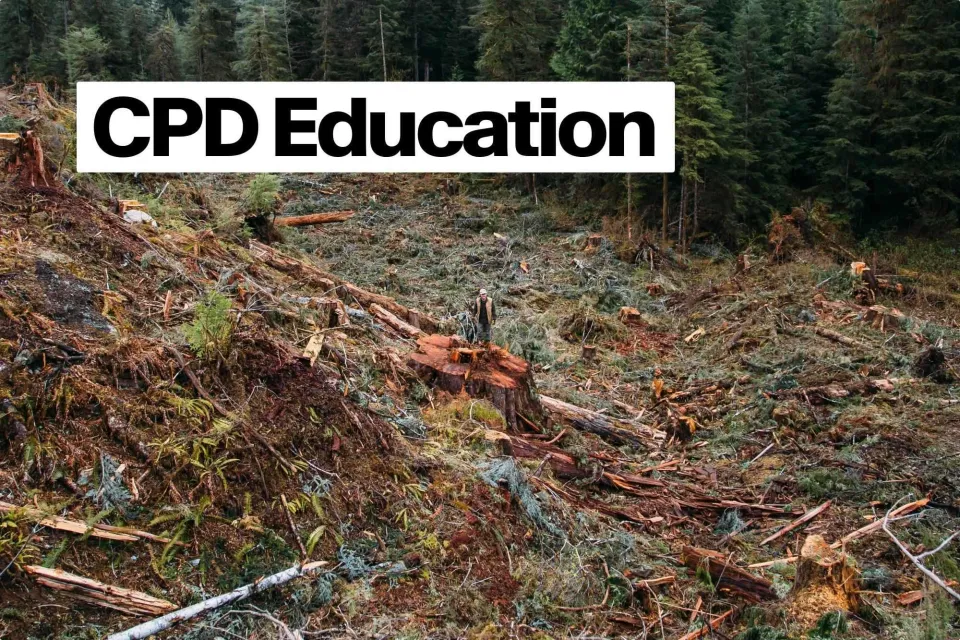
WEBINAR / Protecting the Forests We Can’t Replace
Old growth ancient forests are ecosystems that are centuries in the making. This constructive conversation will show how your architectural decisions can help protect what's irreplaceable.
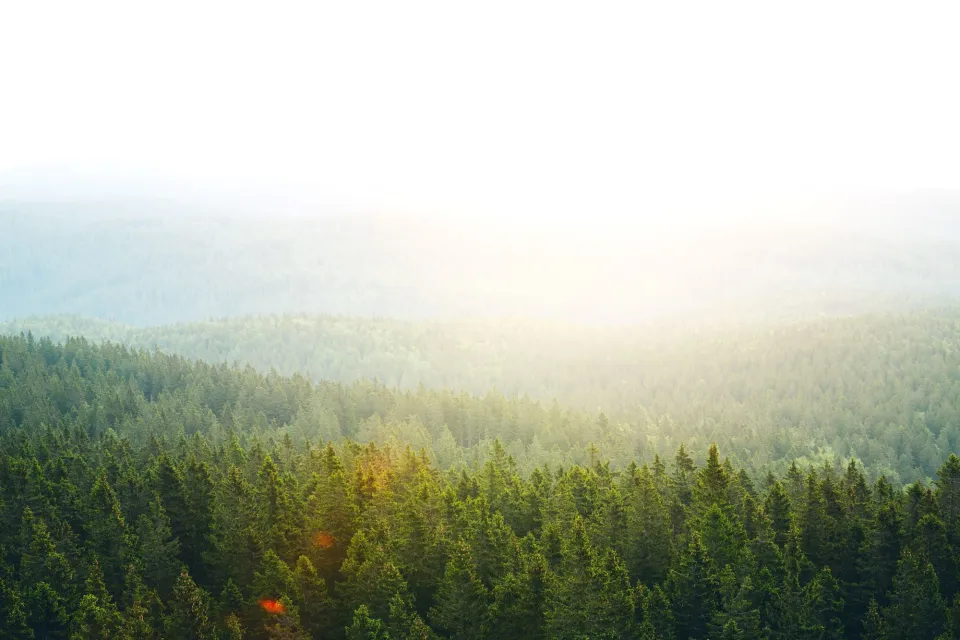
Supporting Soil Health Through Well-Managed Pine Forests
Learn how New Zealand’s approach to forestry has changed over the past generation and how well-managed plantation forests can maintain or improve soil health.
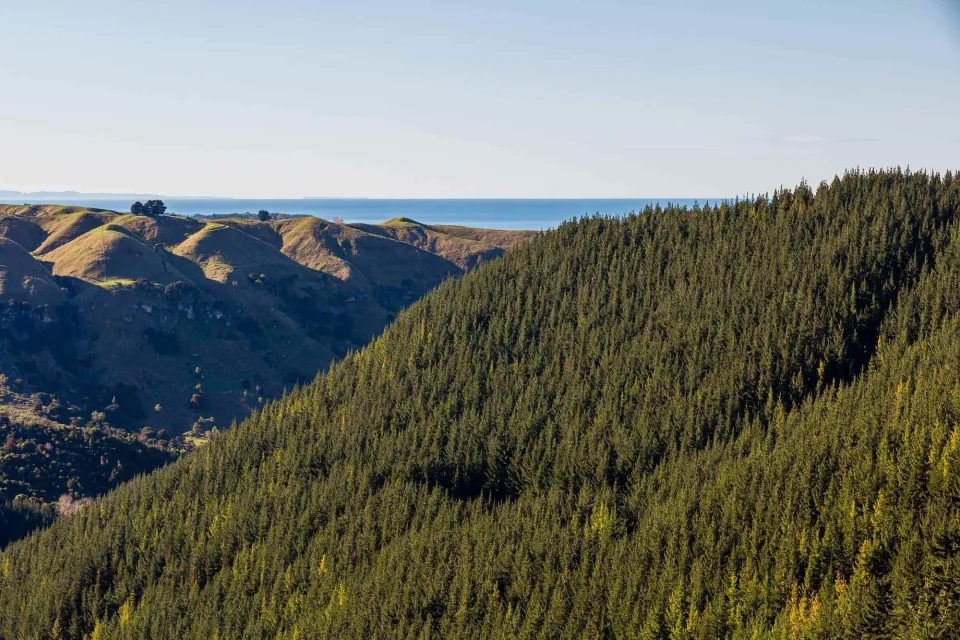
SPOTLIGHT / Pan Pac’s Sustainability Measures
For 50 years, Pan Pac Forest Products Ltd has been growing and processing quality radiata timber products, and are a key supplier for Abodo.


